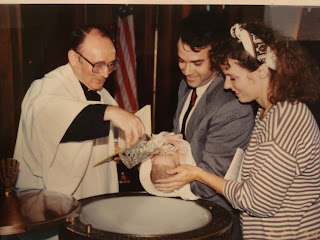 |
Calling for a hypothetical
revolution, ignoring the real one.
|
In a BBC interview in October, comedian Russell Brand called for a revolution. He denigrated the everyday political process as not worth his time, to the point of not voting. The irony is that global culture has already undergone a breathtaking revolution, but no one talks about it. In the last two hundred years, we have abolished slavery, rebranded war as an evil, enacted universal suffrage, advanced women’s rights, made racism unacceptable in polite company, established better rights for the accused, provided institutional support for the poor and elderly, and more. There’s plenty of work left to be done, but the work remaining need not blind us to the phenomenal social progress we have made since 1800. Neither conservatives nor liberals like to talk about this revolution because it doesn’t fit either side’s narrative. The liberal narrative is founded on how bad things are and how desperately we need change, so liberals don’t want to talk about how much progress we have already made. Conservatives don’t want to tout our progress because it’s been liberal progress and they don’t want to remind everyone that they’ve been on the wrong side of history.
One way to look at our progress is from the perspective of the vulnerable people that are being protected by the modern state, compared to how they were treated 200 years ago.
Women: equal rights in voting, property, work, and education; legal contraception; wife beating and marital rape outlawed.
Children: child labor laws, free education, child abuse laws.
Elderly, widows, orphans: social insurance programs.
Poor people: free education, welfare benefits, voting rights, subsidized healthcare.
Sick people: reform of nursing practice, universal health care, disability accommodations.
Prisoners: rights of the accused, rights of convicts, abolition of the death penalty almost everywhere.
Slaves: slavery abolished.
Racial minorities: voting rights, civil rights, discrimination prohibited.
Religious minorities: religious freedom, discrimination prohibited.
Soldiers, POWs: Geneva Conventions.
Workers: safety standards, fair labor laws.
Consumers: anti-trust laws, truth in advertising laws, consumer safety standards, labeling requirements.
Russell Brand wants a revolution but doesn’t vote. In the past 200 years, voting has gotten us a revolution. Whatever we are doing, we should damn well keep doing it. The status quo is progress.
As for which historical figure is most responsible for this social revolution, Friedrich Nietzsche named a candidate. He hated the spread of equal rights for all, and he laid the blame first and foremost on the historical Jesus. But that would be a topic for another post.
Women: equal rights in voting, property, work, and education; legal contraception; wife beating and marital rape outlawed.
Children: child labor laws, free education, child abuse laws.
Elderly, widows, orphans: social insurance programs.
Poor people: free education, welfare benefits, voting rights, subsidized healthcare.
Sick people: reform of nursing practice, universal health care, disability accommodations.
Prisoners: rights of the accused, rights of convicts, abolition of the death penalty almost everywhere.
Slaves: slavery abolished.
Racial minorities: voting rights, civil rights, discrimination prohibited.
Religious minorities: religious freedom, discrimination prohibited.
Soldiers, POWs: Geneva Conventions.
Workers: safety standards, fair labor laws.
Consumers: anti-trust laws, truth in advertising laws, consumer safety standards, labeling requirements.
Russell Brand wants a revolution but doesn’t vote. In the past 200 years, voting has gotten us a revolution. Whatever we are doing, we should damn well keep doing it. The status quo is progress.
As for which historical figure is most responsible for this social revolution, Friedrich Nietzsche named a candidate. He hated the spread of equal rights for all, and he laid the blame first and foremost on the historical Jesus. But that would be a topic for another post.
